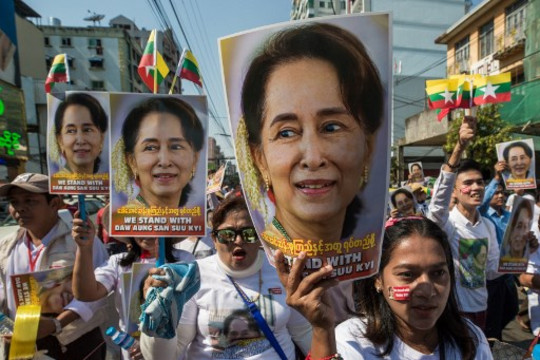At least a dozen soldiers and military vehicles took up positions outside City Hall in Yangon in the early morning, after politicians and prominent political activists were arrested in a series of raids across Myanmar. The coup comes after escalating tension between the powerful military and civilian government following the November general election.
Suu Kyi’s party, the National League for Democracy, won 396 seats out of 476 in the combined count of the upper and lower houses of Parliament. Myanmar’s Union Election Commission rejected the claims of voter fraud.
Government spokesman Myo Nyunt confirmed several leaders had been detained and were expected to also be arrested. “I want to tell our people not to respond rashly and I want them to act according to the law,” he said.
Hours later, Myanmar’s military television station, Myawaddy TV, announced that the military had taken control of Myanmar for one year, citing a section of the constitution that allows the military to seize power in periods of “national emergency”. First Vice President Myint Swe, a former military general, will serve as acting president, the broadcast said.
The broadcast also said the military had seized power as a result of the government’s failure to act on the military’s claims of voter fraud in Myanmar’s election, and a failure to postpone the election because of the Covid-19 pandemic. The first session of Myanmar’s parliament was scheduled to begin on February 1.
A statement issued on January 29 by a group of nations including the United States, the United Kingdom, Australia and New Zealand urged the military to “adhere to democratic norms” and expressed opposition to “any attempt to alter the outcome of the elections or impede Myanmar’s democratic transition”.
Cyber security monitor Netblocks confirmed that internet connectivity in Myanmar fell to 50 per cent of normal levels, indicating a centrally issued telecoms blackout order. Myanmar’s state media network MRTV has been unable to broadcast since government figures were detained.
The IFJ said: “The reports of military imposition of power in Myanmar, with dramatic cuts to phone and internet access, gravely undermine press freedom in the nation. The IFJ opposes any alteration to the democratic process and condemns this attempt to impede the normal and free functioning of the media.”

